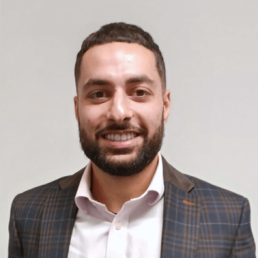This Week at Curzon: Elevating Experiences, Empowering Clients & Embracing Collaboration
This week, Curzon Consulting delved into enhancing travel experiences, celebrated client success stories, and highlighted collaborative expertise within our global network.
Here’s a snapshot of our latest insights and achievements:

Rethinking the Boarding Experience
The Airport Conundrum: It Was All Going Swimmingly Until We Came to Board the Aircraft
Nigel Brannan shared observations on the airport experience, noting improvements in security processes and customer service. However, he highlighted the boarding process as an area lagging behind, often leading to passenger frustration. Nigel advocates for a reimagined boarding experience that matches the advancements seen in other airport operations, emphasising the need for collaboration between airports, airlines, and ground handlers to deliver a seamless end-to-end journey.
https://www.linkedin.com/feed/update/urn:li:activity:7346443843505930242
Client Endorsement in the Financial Sector
Client Testimonial – Growth Strategy in the Finance Sector
We are honoured to share a testimonial from the CEO of an award-winning income protection provider:
“We engaged Curzon to help us with a key strategic review of options for the organisation, introduced via a Board level recommendation and selected after a full tender process. Across senior management, we have found Curzon to be professional, thorough and adaptive to our needs. This includes considering our mutual culture and being pragmatic regarding our size and resources, always with a keen focus on delivery while maintaining a competitive price. We would be happy to recommend their services as a result.”
This feedback underscores our commitment to delivering tailored, impactful strategies that align with our clients’ unique needs and cultures.
https://www.linkedin.com/feed/update/urn:li:activity:7346117886324748288
Showcasing Global Expertise in Change & Communications
Celebrating Nextcontinent’s Change & Communications Experts
As part of our “Meet the Experts” campaign, we highlighted the insights of three professionals driving excellence in Change & Communications within the Nextcontinent network:
- Eva-Maria Krone from Brockmann & Büchner PartG Management Consultancy
- Alba Tizon from Nexe the Way of Change
- Sash Panda from Curzon Consulting
Their perspectives underscore the value of shared insights and collaboration across borders, reinforcing our commitment to delivering transformative change through collective expertise.
https://www.linkedin.com/feed/update/urn:li:activity:7345723000261865473
💬 Final Thought
From enhancing passenger experiences and celebrating client successes to embracing global collaboration, this week reflects our dedication to delivering impactful solutions and fostering meaningful partnerships.
Stay connected with Curzon Consulting for more insights and updates.
📰 Subscribe for weekly insights
💼 Follow Curzon Consulting on LinkedIn
CONTACT US TO FIND OUT HOW WE CAN HELP
This Week at Curzon: Strategy, Security & Supply Chain Success
This week, Curzon Consulting explored the UK’s new industrial strategy, emphasised the importance of digital identity in payments, and celebrated recognition in procurement excellence.
Here’s a snapshot of our latest insights and achievements:

Navigating the UK’s New Industrial Strategy
Insights on the 2025 Industrial Strategy
Gregory Stojakovic initiated a three-part LinkedIn series analysing the UK’s 2025 Industrial Strategy. He delves into its ambitions, potential risks, and the pivotal role industry leaders play in its execution. The series aims to foster a practical understanding of the strategy’s implications and encourages active participation from stakeholders across sectors.
https://www.linkedin.com/feed/update/urn:li:activity:7343958583513939968
Digital Identity: The New Frontier in Payments
Securing Seamless Transactions
As payment systems evolve for speed and convenience, the significance of digital identity in ensuring security has become paramount. Sash Panda & Kanika Kochhar highlight the challenges and solutions in verifying identities, preventing fraud, and maintaining trust in digital transactions.
https://www.linkedin.com/feed/update/urn:li:activity:7343182944477364224

Celebrating Procurement Excellence
Shortlisted for the 2025 CIPS Awards
We’re honoured to be shortlisted for the 2025 CIPS Excellence in Procurement Awards in the “Procurement Consultancy Project of the Year” category, in collaboration with Convatec. This recognition underscores our commitment to delivering transformative procurement solutions through strategic collaboration and innovation. curzonconsulting.com
https://www.linkedin.com/feed/update/urn:li:activity:7343544587363266562
💬 Final Thought
From dissecting national strategies to enhancing digital security and achieving procurement milestones, our focus remains on driving impactful change. We invite you to engage with us as we continue to navigate complex challenges and deliver sustainable solutions.
Stay connected with Curzon Consulting for more insights and updates.
📰 Subscribe for weekly insights
💼 Follow Curzon Consulting on LinkedIn
CONTACT US TO FIND OUT HOW WE CAN HELP
This Week at Curzon: Unblocking Infrastructure, Strengthening Security & Elevating Recognition
This week, we tackled the core themes of delivery resilience, cross-sector collaboration, and team celebration.
Here’s your weekly roundup:
Unblocking EV Infrastructure
Why is the UK’s EV Charger Roll‑Out Stalling?
Andrew Wilson and Edward Hunt spotlight the systemic bottlenecks behind the stalled deployment of electric vehicle charge points. Despite over 80,000 operational chargers, issues like fragmented planning, misaligned stakeholder incentives, and legacy manual processes are hampering progress.
Curzon Consulting recommends operational transformation—prioritised rollout sequencing, integrated governance, and digitised workflows—to ensure the government’s goal of 300,000 chargers by 2030 stays on track.
https://www.linkedin.com/feed/update/urn:li:activity:7341034157768093697
Cybersecurity Across Borders
Celebrating Nextcontinent’s IT Security Experts
As part of Nextcontinent “Meet the Experts” campaign, we shone a spotlight on three cybersecurity leaders within the Nextcontinent network: Jan Albert (Germany), Carlos Vidinha (Portugal), and André Rapp (Germany).
Their work is central to defending critical industries against advanced cyber threats—and reinforces our commitment to shared learning across borders.
https://www.linkedin.com/feed/update/urn:li:activity:7340678599248666624
NHS Capacity: Bricks vs Brains
Are More Hospitals Really the Answer?
Chetan Trivedi and Serban Suvagau, MBA challenge the assumption that building new hospitals is the solution to the UK NHS bed shortages. With many beds tied up in delayed discharge and new builds over budget, alternative capacity models are offering more impact:
- Day-case surgical units
- Virtual wards
- Community diagnostic hubs
- Surgical hubs
These targeted, cost-effective approaches are easing pressure without the need for major capital investment.
https://www.linkedin.com/feed/update/urn:li:activity:7340656959630512131
Celebrating Success: Healthcare Team Award
Platinum Recognition in Consultancy.uk Awards! We’re thrilled to share that our Healthcare practice has been awarded Platinum in the Consultancy.uk awards—a testament to the team’s expertise, dedication, and impact.
Huge congratulations to Chetan Trivedi, Serban Suvagau, MBA, and the entire healthcare team for earning this industry-leading accolade.
💬 Final Thought
This week’s highlights reflect our core mission: overcoming delivery challenges, empowering cross-border expertise, and championing smarter, resource-efficient solutions. From infrastructure to healthcare, Curzon Consulting stands committed to delivering systems-led change that drives real impact.
Stay connected with Curzon Consulting for more insights and updates.
📰 Subscribe for weekly insights
💼 Follow Curzon Consulting on LinkedIn
CONTACT US TO FIND OUT HOW WE CAN HELP
This Week at Curzon: Rethinking Systems for Smarter Outcomes
This week, our team explored the power of systems thinking in healthcare, defence, and finance while also celebrating connection and community through one of our prized team traditions.
Here’s your weekly roundup:
Healthcare Workforce: Beyond the GP Numbers
“We need thousands more GPs” — or do we?
Chetan Trivedi and Serban Suvagau challenge the prevailing narrative around GP shortages. While the UK government’s £29 billion NHS funding boost aims to increase the number of trained doctors, many GP graduates are struggling to find positions, even as patient demand rises.
This paradox suggests that simply increasing GP numbers may not be the optimal solution. They explore alternative models, including leveraging pharmacists, social prescribing, AI triage, and prevention-first approaches, to reshape frontline healthcare delivery.
https://www.linkedin.com/feed/update/urn:li:activity:7338895127819546624

Defence Strategy: From Vision to Execution
Reinventing the UK Defence Strategy
Bryan Clark analyses the UK’s Strategic Defence Review, highlighting significant investments: £1.5 billion for new munitions and energetics factories, procurement of up to 7,000 UK-manufactured long-range weapons, and a £5 billion investment in technological innovation, including drone and laser weapon technology. These initiatives are projected to create nearly 2,000 jobs, reinforcing the UK’s position as a ‘defence industrial powerhouse’. Bryan emphasises the need for the government to move beyond aspirational narratives and commit to specific, actionable, and quantifiable strategies to ensure effective implementation.
Check out our concise explainer (which will avoid the need to plough through the report and its references). Visit https://lnkd.in/eyapgzq2
https://www.linkedin.com/feed/update/urn:li:activity:7338506121428541440
Payments: Unpacking the Decline
“Payment Declined” — What’s Really Going On?
Sash Panda shares a personal experience of a card decline to shed light on the complexities behind payment failures. She reveals that factors beyond account balance and card status—such as the interplay between banks, networks, and merchants—can lead to false declines. With 30% of e-commerce declines being false alarms, businesses face significant revenue losses and eroded customer trust.
At Curzon Consulting, we assist financial services organisations in addressing these systemic issues to enhance customer experience and reduce unnecessary transaction failures.
https://www.linkedin.com/feed/update/urn:li:activity:7338164666629578752

Celebrating Community: Principal Dinner Highlights
An Evening of Chemistry, Conversation, and Connection, Thursday saw the latest in our Partner/Principal Dinner series, where team members Kerris Mackley, Edward Hunt, and Abhishek Roy joined Serban Suvagau for a warm and lively evening at Caravan City. The night featured thoughtful discussions about life, community, sports, and work, with a nostalgic nod to our shared chemistry roots.
A heartfelt thank you to Serban for hosting a memorable dinner, and a special shoutout to Preetesh Sood for organising the evening. It’s these moments of connection that make Curzon Consulting more than just a workplace.
💬 Final Thought
This week’s updates reflect a growing consensus: turning strategy into results demands systemic change. Whether it’s defence, procurement, or energy infrastructure, our focus remains on helping clients remove friction, unlock capability, and deliver measurable impact.
Stay connected with Curzon Consulting for more insights and updates.
📰 Subscribe for weekly insights
💼 Follow Curzon Consulting on LinkedIn
CONTACT US TO FIND OUT HOW WE CAN HELP
This Week at Curzon: Innovation, Infrastructure & Growth
From cutting-edge defence advancements to tackling infrastructure challenges and celebrating team achievements, this week at Curzon Consulting has been marked by progress and recognition.
Here’s a snapshot of our latest insights and milestones:
Defence Innovation & Economic Growth:
Harnessing AI and Robotics for National Security

Bryan Clark highlighted recent UK defence breakthroughs, including:
- The successful execution of the UK’s most comprehensive defence AI trial, enhancing maritime surveillance and decision-making processes.
- The effective deployment of the UK’s Radio Frequency Directed Energy Weapon (RF DEW) against drone swarms, marking a pivotal shift in warfare strategies.
- The launch of the remotely operated mine plough, WEEVIL, underscoring the UK’s commitment to soldier safety and the growing role of robotics in modern warfare.
These advancements not only bolster national security but also sustain over 135 specialised jobs, illustrating the symbiotic relationship between defence policy and economic growth.
https://www.linkedin.com/feed/update/urn:li:activity:7335930884283412482
Infrastructure: Progress or Paralysis?
Assessing the State of UK Infrastructure
Nigel Brannan & Andrew Wilson introduced an interactive quiz to evaluate understanding of the systemic challenges facing UK infrastructure, such as:
- Delayed planning approvals and productivity gaps.
- Fragmented delivery and legacy systems.
- Innovations that could transform performance at scale
This initiative aims to provoke thought and discussion on the real-world issues slowing progress and the levers that can unlock performance.
https://www.linkedin.com/feed/update/urn:li:activity:7336343228490678275

Celebrating Team Growth
Record-Breaking Promotions at Curzon
We’re thrilled to announce a record-breaking round of promotions within our team
- Congratulations to Abhishek Roy, Pav Sanghera and Preetesh Sood on their promotion to Senior Consultant.
- A special shoutout to Edward Hunt, who has been promoted to Consultant.
These milestones reflect the incredible talent and commitment within our team.
https://www.linkedin.com/feed/update/urn:li:activity:7335568471449067521
💬 Final Thought
This week’s developments underscore our dedication to driving innovation, addressing systemic challenges, and fostering team growth. As we continue to navigate complex landscapes, our focus remains on delivering tangible results for our clients and contributing to national progress.
Stay connected with Curzon Consulting for more insights and updates.
📰 Subscribe for weekly insights
💼 Follow Curzon Consulting on LinkedIn
CONTACT US TO FIND OUT HOW WE CAN HELP
This Week at Curzon: Delivering on Strategic Ambitions
1st June 2025
As the UK faces complex challenges in defence, energy, and public sector reform, the spotlight turns not just to policy, but to delivery. This week, the Curzon Consulting team shared critical insights on the enablers and barriers to achieving national goals.
Here’s your weekly roundup:
Defence & Strategic Delivery
Can We Build Fast Enough to Deliver Defence Ambitions?
The government has committed to a generational uplift in defence investment. But as Gregory Stojakovic and Virginia Arguelles point out, the key question isn’t about money, it’s about execution.
Delivery capability, supply chain readiness, and programme discipline are now the real battlegrounds. Without reforms that drive productivity and remove bottlenecks, record funding risks falling short of the intended impact.
📌 Insight: Unlocking value in defence demands more than funding; it requires agile delivery and strategic project leadership.
https://www.linkedin.com/feed/update/urn:li:activity:7333057292705144832
Procurement Reform & ESG Impact

Procurement Legislation Is Reshaping NGO-Business Partnerships
James Edsberg explains how recent reforms to UK procurement law are creating a shift in the way public sector and NGO partnerships operate. Under the new legislation, suppliers must show serious intent around Net-Zero targets and broader ESG goals.
This is catalysing internal change across organisations—raising the bar on transparency, accountability, and social value integration in public contracts.
📌 Insight: ESG is no longer a ‘nice to have’ it’s becoming a core contract requirement, and businesses must adapt fast.
https://www.linkedin.com/feed/update/urn:li:activity:7333394118015946753
Nuclear Infrastructure & Productivity
Why Nuclear Projects Struggle—and How We Can Fix It
As the UK looks to nuclear energy to strengthen energy security and meet climate goals, Andrew Wilson explains why delivery remains a stumbling block. Chronic delays and budget overruns are often caused not by technical complexity, but by governance and management breakdowns.
Drawing on infrastructure programme experience, he calls for stronger leadership, smarter supply chain strategies, and long-term project discipline to restore trust in major capital projects.
📌 Insight: Productivity and predictability, not just innovation will determine the success of the UK’s nuclear ambitions.
https://www.linkedin.com/feed/update/urn:li:activity:7333756511631929344
💬 Final Thought
This week’s updates reflect a growing consensus: turning strategy into results demands systemic change. Whether it’s defence, procurement, or energy infrastructure, our focus remains on helping clients remove friction, unlock capability, and deliver measurable impact.
📰 Subscribe for weekly insights
💼 Follow Curzon Consulting on LinkedIn
CONTACT US TO FIND OUT HOW WE CAN HELP
New procurement legislation is having profound impact on the partnerships between business and the NGO sector
The relationship between the business sector and not-for-profit sector is evolving fast – driven in part by new UK procurement legislation – with implications for how organisations across all sectors adapt their business models and social partnerships.
James Edsberg looks at how the need to deliver both profit and social value will impact fundamental aspects of organisational strategy – driven by recent changes to procurement legislation.
The Public Services (Social Value) Act 2013 and The Procurement Act 2023 (which came in to force in February) – along with the regulations and guidance notes published with them – are shaking-up how the private sector bids for publicly-funded contracts.
The numbers involved are vast. The UK public sector spends over £388 billion each year on procurement including the provision of services, materials and equipment. The top 3 areas of spend being in health, defence and transport. That’s £1 in every £3 of government spending. (Source: Institute for Government Report 2024).
Central to the changes in the bidding process is the requirement that suppliers pitching for contacts should demonstrate how any contract ‘maximises public benefit’. Tenders will now be awarded not just on economic grounds and price criteria, but on a more comprehensive view of value, including social value, sustainability, innovation and community benefit.
Part of the selection process requires bidders to set out a clear, multi-year plan to deliver measurable this value in an integrated way aligned to the government’s missions.
In short, adding a social value and ESG component to every public sector bid and its delivery is no longer a ‘nice to have’ – it’s compulsory and critical to a successful tender.
Importantly, this development is having a ripple effect that goes much wider than the 40 or so companies categorised as ‘strategic suppliers’ for which the government contracts are worth more than £100 million per year. Here are three emerging impacts among many (and I’ll return to this topic again in future posts…)
First – government-focused businesses also provided services into the private sector – and in parallel, that private sector client base is also assessing their suppliers for the ESG benefits they can contribute. Public procurement is influencing change in private procurement.
Second – the way large providers create social value, is mostly via the partnerships they have with the VCSE sector (Voluntary, Community and Social Enterprise). There is now a greater need than ever for that partnership to work – and to be seen to work – in a way that is much more transparent. This is evidenced by the much increased focus on measurement, KPIs and demonstrable results, which is driving deeper accountability and improved programme design between businesses and VCSEs.
Third – the length of engagement in large contracts (both private and public) is prompting a shift away from 12-month projects and a ‘charity of the year’ mindset in the corporate world, to a more committed, multi-year collaboration between the business and social value sector. All for the good – but requiring a significant change in mindset and expectations on all sides.
One of the long-term benefits which many hope for is that the legislation’s focus on social and community impact, will require partnerships between business and VCSEs to address not the symptoms of a social or environmental issue but the preventative steps that prevent or reduce it emerging in the first place.
Together, these and other changes, are already prompting businesses and not-for-profit organisations to review what they do, how they do it, and the challenging issues around accountability and results.
In turn, this is prompting internal questions about strategic direction, partner selection, programme design, organisational structure, skillset, capacity-building, ability to deliver scale, funding models and the nature of collaboration between the commercial sector with the resources to support change – and the VCSE sector with the lived experience and expertise to shape initiatives.
CONTACT US TO FIND OUT HOW WE CAN HELP
Excess Mortality Report
The Silent Toll: Highlighting the Surge in Non-Covid Excess Mortality Amongst the Young and Exploring Potential Causes
The Pandemic is now a memory, yet non-Covid deaths continue to rise, for reasons the UK’s top healthcare authorities are unable to explain. The UK government’s own data shows Excess Mortality spiked most significantly among young people in 2022 and 2023, and shows a substantial increase in deaths due to heart failure during the same period – in 2023 alone, 7 times more people died unexpectedly, for reasons unrelated to COVID, than died in the single worst night of the Blitz. We provide insights into the excess mortality trends, explore potential causes, and urge a proper and broader investigation of the true root causes.
Navigating the future: AI's impact on wealth management firms
In recent months, the financial services industry has witnessed significant advancements in artificial intelligence (AI), sparking both excitement and apprehension amongst wealth managers. While the potential benefits of AI are undeniable, the wealth management sector has been understandably cautious in embracing this transformative technology. This hesitation can be attributed to several factors, including a prioritisation of addressing critical gaps in services, concerns about client relationships, and the unique needs of different market segments.
In this blog, we explore the hopes and fears of integrating AI in wealth management, balancing the potential savings and efficiencies that can come from technological advancement alongside the concerns over an erosion of personalised client services.
Back office transformation
The potential for improved efficiency through AI and machine learning is substantial, particularly in areas like automating trade settlements, automating regulatory compliance, and risk management.
However, within the technology function of many wealth management firms, the primary focus often relates to implementing new traditional services and upgrades to address key operational gaps. Implementing non-AI solutions to enhance services such as regulatory compliance, Environmental, Social, and Governance (ESG), Customer Relationship Management (CRM), and digital services are typically considered more important and lower risk.
Because of the potentially significant benefits and the remarkable pace of change in AI, we believe that wealth management firms should put aside time and budget in 2024 to carefully evaluate the potential efficiencies and cost savings offered by AI, balancing these against the benefits of their current project portfolio. This assessment will help determine if prioritising AI integration is a strategic move that aligns with their operational goals.
Front office dilemma
We are starting to see the emergence of more AI-powered tools that can transform the front office experience for wealth managers and their clients. Early adoption of these innovations has the potential to allow client advisors and relationship managers to better serve “mass affluent” clients. Use of AI in this environment could combine the advantages of a human-led personalised service and advisor judgement with the scalability and insights that AI can provide.
However, implementation of AI in the front office remains a challenge. Securing funding to develop new AI capabilities requires proof of value to the organisation and clients. Wealth managers must also weigh up the benefits against factors such as data and integration challenges, evolving financial services regulations for AI, and the perceived lack of trust from clients in insights generated from AI.
Industry evolution
We believe a small number of early adopting wealth managers armed with AI capabilities are likely to start disrupting the industry at some point in the next year. Developing a strategy, plan, and business case for AI integration is important to avoid being left too far behind.
Key considerations
- Early adoption dilemma: The decision to be an early mover or a follower with respect to AI in the wealth management market needs careful consideration of the associated risks and rewards.
- Barriers to progress: For those who decide to invest in AI, there are some foundational elements that could act as barriers to AI progress if not addressed:
- Data governance and quality: Building a foundation of sound data governance and ensuring data quality is imperative for effective AI implementation. This discipline is important in any organisation but vital to get the best out of AI solutions.
- Robust data infrastructure: Modern platforms with adaptability to change swiftly are most suitable to form the backbone of successful AI integration.
- Skilled resources: The availability of appropriately skilled individuals is critical for navigating the complexities of enterprise AI.
Conclusion
As the wealth management sector contemplates the role of AI, a delicate balance must be struck between embracing innovation and preserving the personal touch that defines many client relationships. While challenges exist, we believe that the potential rewards in terms of cost savings, productivity gains, and enhanced client experiences will make the journey towards AI integration worthwhile. Wealth managers should consider their strategy for when and how to look at the opportunities that AI can provide for them to ensure that they don’t fall behind their competitors.
CONTACT US TO FIND OUT HOW WE CAN HELP
Driving Strategic Impact: A Curzon Consulting Guide to Procurement Excellence
As management consultants, we help clients achieve substantial cost savings and efficiencies through procurement transformations. But truly effective transformations require surmounting common challenges like limited spend visibility and stakeholder alignment.
Based on a recent engagement delivering over £5M in savings, here are our proven tips for procurement transformation success:
Optimise spend visibility
Robust spend analysis is crucial. Categorise expenditures and pinpoint top suppliers and contracts per category. Without clean baseline data, it’s impossible to identify savings levers. Advanced analytics and mining uncover hidden insights, while stakeholder interviews provide a qualitative context.
Benchmark and identify gaps
Benchmark pricing and performance versus industry best practices to reveal overpayment. Consolidate volumes for improved leverage. Deep supply market analysis uncovers alternative vendors and guides negotiations.
Strategise and priortise
Conduct opportunity assessments to inform transformation planning. Develop tailored category-specific sourcing strategies. Model potential savings scenarios and sequence initiatives based on impact, effort, and stakeholder readiness.
Secure stakeholder alignment
Amidst change, align stakeholders through clear communication and early buy-in. Identify key decision-makers and influencers. Educate on best practices and projected bottom-line impact. Procurement must shed its tactical image and be seen as a strategic function driving millions in bottom-line impact.
Relentlessly implement
With the strategy set, focus intensely on implementation. Maintain discipline in negotiations while preserving supplier relationships. Enforce contract compliance and tail spend management.
Continuously improve
Sustaining change requires continuous improvement. Redesign operating models, policies, KPIs, training, and integrate new tech and ways of working. Build analytics to monitor savings and flag waste recurrence. Institutionalising change is the hallmark of procurement leaders.
After meeting our cost-savings goals, we leveraged our award-winning assessment framework to ensure the procurement organisation’s long-term success. Our framework evaluates Procurement across five dimensions: People, Strategy, Systems, Governance, and Management. This data-driven approach identified gaps and enabled us to strategise implementing best practices. Ultimately, these steps addressed challenges, so the procurement organisation can expand its influence and be viewed as a strategic partner across all business units.

In conclusion
As trusted consultants, we overcome inertia and silos to deliver rapid yet lasting transformation. With deep expertise and cross-industry perspective, we objectively assess opportunities, align stakeholders, and implement best practices. The result is simplified sourcing, lower costs, reduced risks, increased efficiency, and strategic impact.
Let us conduct an initial diagnostic for your procurement organisation. We will benchmark performance, identify savings levers, and provide a roadmap to deliver value.














